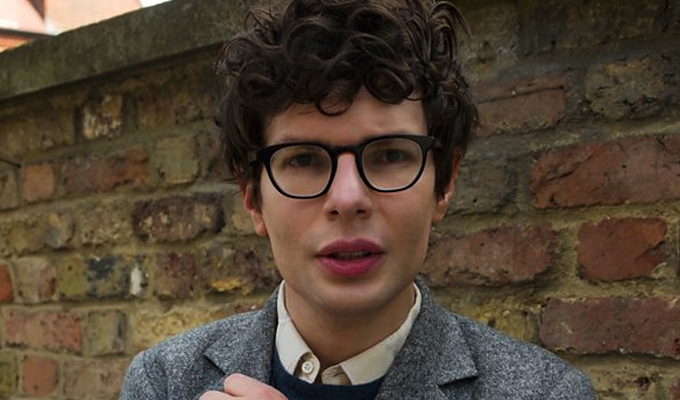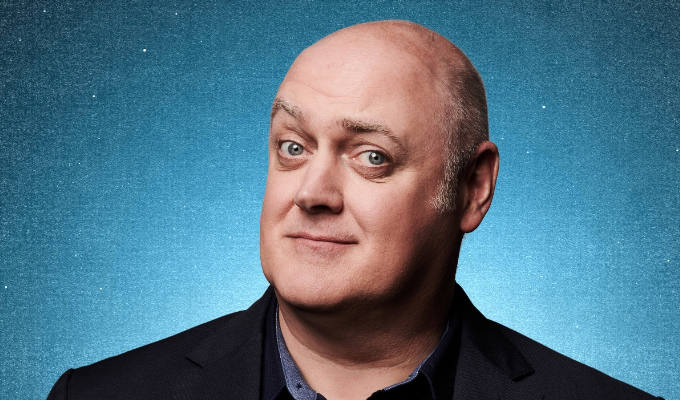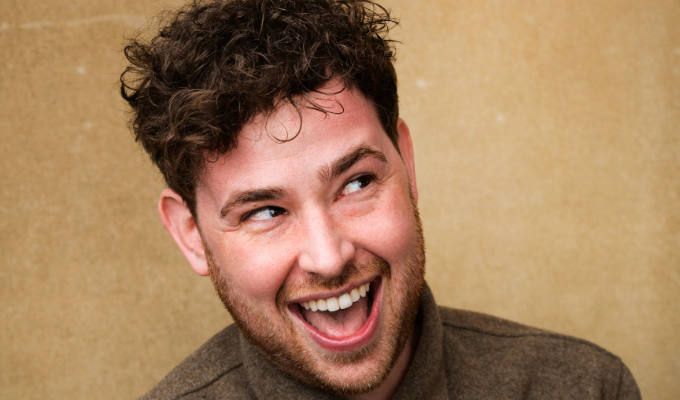
Help, by Simon Amstell
Book review by Steve Bennett
Simon Amstell said he was ‘tricked’ into writing this book. Being offered the chance to have the transcripts of his live shows published flattered his ego, even though he wondered who it might be for. ‘For people who don’t like hearing stand-up out loud?’
Instead, in what he calls ‘an heroic act of self-annihilation’ he expanded the initial idea and now threads extracts from his stage work – a different font representing each of his four specials – with more honest, in-depth biographical notes to make something slightly more akin to a traditional memoir.
Amstell’s always been pretty frank on stage, or at least aimed for it, as he peels away he layers of his angst. He seems to feel emotions very acutely, from love to loneliness, anxiety to abandonment – which has made him a brilliant self-critical comedian, though not always a happy person, as Help makes abundantly clear.
There is genuine pain behind the over-analytical, self-deprecating quips he makes, and he finds dry humour in his situation. After all, that’s his coping mechanism. His therapist wishes he wasn't trying to be funny all the time as it obscures his true feelings; but he fears ‘funny’ is all he’s got. And it’s fuelled a pretty successful career, with the adulation of crowds filling an emotional void.
After all, he says the reasoning behind his early desire to be famous was that ‘I’d never be lonely because there would always be fan mail’.
In this brisk book – 209 pages with suspiciously wide margins – Amstell is evocative and wittily self-aware about his upbringing as a painfully shy, socially awkward boy in Romford. His first gig was a stage school showcase when he was 13, stealing some prop gags and jokes about Irish people from the TV that make him cringe today.
By 18, he was working on Nickelodeon, quite a success for one so young, although he still struggled with his sexuality, not having yet come out as gay. He retells the story how he sneaked off to Paris with the aim of kissing a boy for the first time because he couldn’t deal with it in Essex. It didn’t go well and still left him confused.
When he did finally come out to his mother – during his Popworld years – she went straight for denial, while his aunt cried for two hours straight. His uncle brought him an explicit book about gay sex. Dad? Well that relationship was already strained, and might have suggested electroshock therapy to ‘cure’ him. No wonder Amstell Sr gets his own chapter.
As his TV fame grows, the comedian finds himself at glamorous parties with beautiful people, prompting more insecure navel-gazing about the vulnerable, damaged boys he falls for and the way he often feels an outsider among the effortlessly hip. He reveals he developed a form of eating disorder around this time.
Amstell’s writing often contains profundity alongside morsels of pithy wit. For example, he’s disappointed when he's diagnosed with classic depression, hoping for something more exotic. ‘I didn’t think I was depressed,’ he writes. ‘I thought I was profound.’
He has tried to address his problems through therapy, cleaning up his lifestyle, going on a native American ‘sweat lodge’ in Norfolk, and trying to follow the Buddhist philosophy of ‘no self’ – not always easy given the very job of stand-up us built on ego.
He eventually finds relief from what ails his psyche at an ayahuasca retreat in the Peruvian rainforest. It’s here the book takes a different turn. This is, effectively, a series of tales about getting high on a hallucinogenic drug, wrapped up in pseudo-mystical nonsense about unlocking the self.
You might expect a comic to puncture some of the hippyish claims around this, but even the cynical Amstell gets drawn in, since the treatment did actually work for him. Although being so analytical he initially worries whether he’s getting the right effects, and keeps a detailed diary when he’s supposed to be submitting to the process. But the prose gets heavy-going here as he talks about his visions… it is exactly like hearing someone describe their dreams, hard to connect with.
 In some ways that’s ironic, as the upshot of all his therapies is that Amstell has come to realise that fame isn’t what he really seeks, but connections. Now he notes: ‘I want to be anonymous enough that I can go to a restaurant and eat with the person that I am with, but not so anonymous that someone in that restaurant doesn’t tell me that something I’ve done is brilliant’.
In some ways that’s ironic, as the upshot of all his therapies is that Amstell has come to realise that fame isn’t what he really seeks, but connections. Now he notes: ‘I want to be anonymous enough that I can go to a restaurant and eat with the person that I am with, but not so anonymous that someone in that restaurant doesn’t tell me that something I’ve done is brilliant’.
This book is definitely part of his quest for good mental health. ‘It feels good to have all these stories out of my head and in a book where they can’t confuse me any more,’ he writes. ‘I got them out of me.’
• Help by Simon Amsell has been published by Square Peg, priced £12.99. Click here to buy it from Amazon for £8.
Published: 6 Nov 2017






